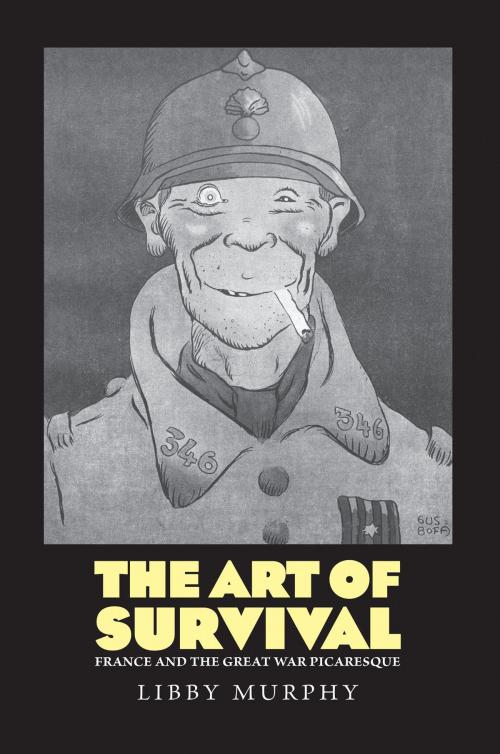The Art of Survival
France and the Great War Picaresque
Fiction & Literature, Literary Theory & Criticism, French, European, Nonfiction, History, France| Author: | Libby Murphy | ISBN: | 9780300225006 |
| Publisher: | Yale University Press | Publication: | August 23, 2016 |
| Imprint: | Yale University Press | Language: | English |
| Author: | Libby Murphy |
| ISBN: | 9780300225006 |
| Publisher: | Yale University Press |
| Publication: | August 23, 2016 |
| Imprint: | Yale University Press |
| Language: | English |
The First World War soldier has often been depicted as a helpless victim sacrificed by a ruthless society in the trenches of the Western Front. In fact, Libby Murphy reveals, French soldiers drew upon a long-standing European tradition to imagine themselves not as heroes or victims but as survivors. Murphy investigates how infantrymen and civilians attempted to make sense of the war while it was still in progress by reviving the picaresque, a literary mode in which unheroic protagonists are forced to fend for themselves in a chaotic and hostile world. By examining works by French and European novelists, journalists, graphic artists, cultural critics, and filmmakers—including Charlie Chaplin—Libby Murphy shows how the rich tradition of the European picaresque was uniquely appropriate for expressing anxieties provoked by modern, industrialized warfare.
The First World War soldier has often been depicted as a helpless victim sacrificed by a ruthless society in the trenches of the Western Front. In fact, Libby Murphy reveals, French soldiers drew upon a long-standing European tradition to imagine themselves not as heroes or victims but as survivors. Murphy investigates how infantrymen and civilians attempted to make sense of the war while it was still in progress by reviving the picaresque, a literary mode in which unheroic protagonists are forced to fend for themselves in a chaotic and hostile world. By examining works by French and European novelists, journalists, graphic artists, cultural critics, and filmmakers—including Charlie Chaplin—Libby Murphy shows how the rich tradition of the European picaresque was uniquely appropriate for expressing anxieties provoked by modern, industrialized warfare.















